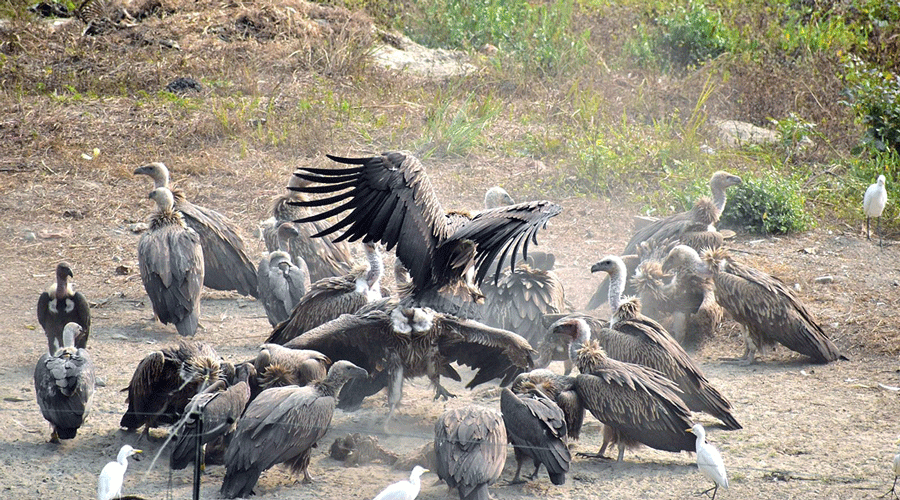Thirteen white-backed vultures bred in captivity at Rajabhatkhawa in the Alipurduar district were released in the wild on Friday with satellite transmitters fitted to the wings to track their movements.
A vulture breeding centre had been set up at Rajabhatkhawa in association with the Bombay Natural History Society (BNHS) to prevent a decline in the population of the scavenger birds.
So far, 31 white-backed vultures have been released from the centre in three phases.
India’s vulture population had fallen to a few hundred in 2007 from an estimated 40 million in the early 1980s. Scientists blamed the decline in numbers on diclofenac — a common painkiller administered to cattle.
Vultures get exposed to diclofenac when they feed on carcasses of livestock that were administered the drug. The drug is toxic for vultures.
“So, two breeding centres were opened (the other one is at Pinjore in Haryana). Over the years, we could successfully breed three species of vultures and today, 13 were released in the wild,” said Sachin Ranade, a scientist of BNHS who is posted in Rajabhatkhawa. He said satellite transmitters were fitted to the 13 birds so that their flight could be monitored.
Along with white-backed vultures, long-billed and slender-billed vultures have also been bred at the centre. “These species will also be released in the wild in due course,” said Ranade.
Ranade said from now, the scientists were planning to introduce double-clutching system — a modern breeding system — at the Rajabhatkhawa centre to breed more vultures. The system has already started in Pinjore.
“Usually, a female vulture lays one egg in a year. But through research, it has been found that if the egg is separated from the female, the same bird lays another egg. The first egg can be put in an incubator for breeding. This will help us get two birds from one female in a year,” the scientist said.











